Our Star Trek: Picard Season 1 finale coverage continues today with a roundup of series showrunner Michael Chabon’s thoughts on the first year’s events; the executive producer shared his thoughts with a number of different outlets this week as the series came to its 2020 conclusion.
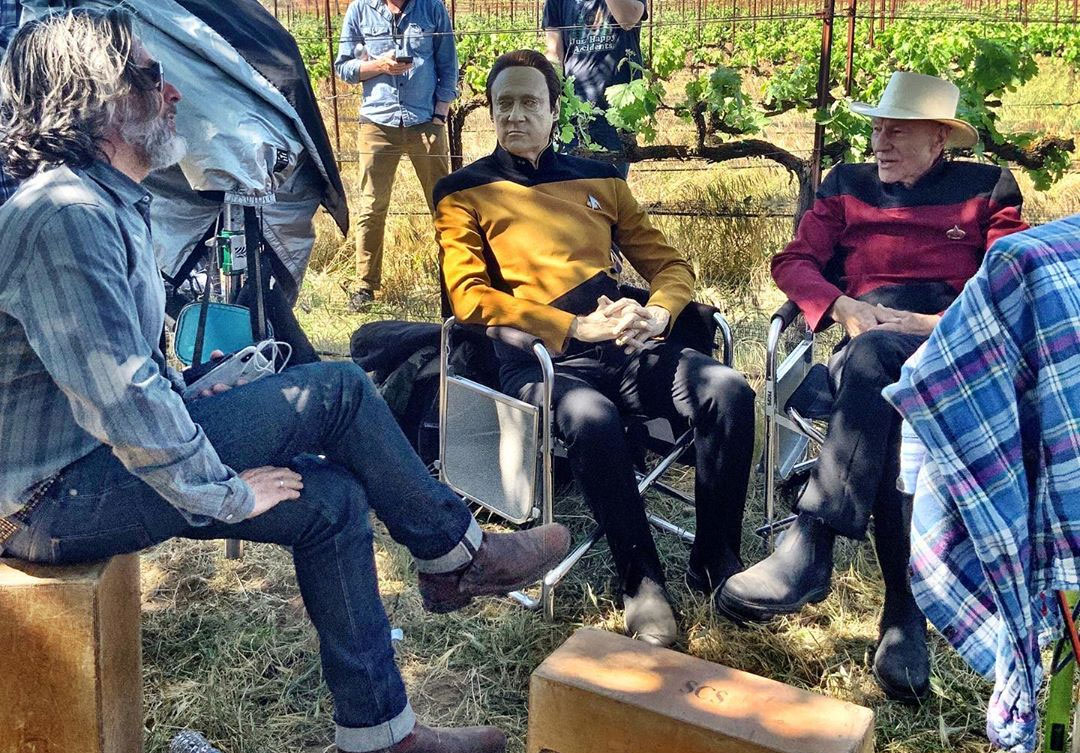
Speaking first with The Hollywood Reporter, the writer shared that the plan to allow Jean-Luc Picard (Patrick Stewart) to die — and then be reborn as an organic synthetic — was in the cards from the start of the storytelling process, though the specifics were worked out along the way.
“It was the plan from early on, but in the beginning, you start out — it’s sort of like a tree, but you’re going backwards down the tree. As you make choices, you end up with fewer and fewer ones, and each choice leads to a fewer range of fewer possibilities. At some point, we probably talked about 25 different ways to end it. And then we were down to like eight different ways, and then six different ways. And then, landing on this way.
There was a moment where we had a conversation — Akiva [Goldsman], Kirsten Beyer and I — and we went to talk to Alex Kurtzman. We had this realization that if we want to put our money where our mouth has been all season — if we’re saying that since synthetic lifeforms are real and legitimate and they have their sentience, and they have the right to life and existence, if we’re going to be putting Picard out there, where he’s going to stand up and be willing to sacrifice his own life to prove that point?
Then he needs to prove it with his life.”
On the subject of being reborn, we’ve seen many fans wonder why the series didn’t just put Data (Brent Spiner) into a new synthetic body — instead of letting the android’s replicated consciousness fade into stardust in “Et in Arcadia Ego, Part 2.”
Talking with IGN, Chabon made it clear that was never part of their plan.
“I suppose you could imagine scenarios where, I don’t know, he became sort of a holo like the Doctor on ‘Voyager’ or something like that. Maybe that would have interested Brent, I don’t know.
But we understood from pretty early on, in breaking the stories, that in some way it was going to culminate with an encounter between Picard and Data, but that encounter was going to be constrained by what also pretty quickly emerged as this idea that it was only going to be possible in a sort of simulation. That Data really is dead. That Data did die.
I guess what I’m remembering as a directive — or as a kind of guideline from Brent — was that he didn’t want us to ‘un-kill’ Data; that Data shouldn’t be undead, that he died and he really died. And he’s going to stay dead, and don’t try to undo that.
So we had a pretty clear sense from the beginning it was going to be some version of what you actually see in the last episode.”
(In an interview with TV Guide, Spiner also reiterated that he’s not interested in putting the gold makeup on again, anyhow.)
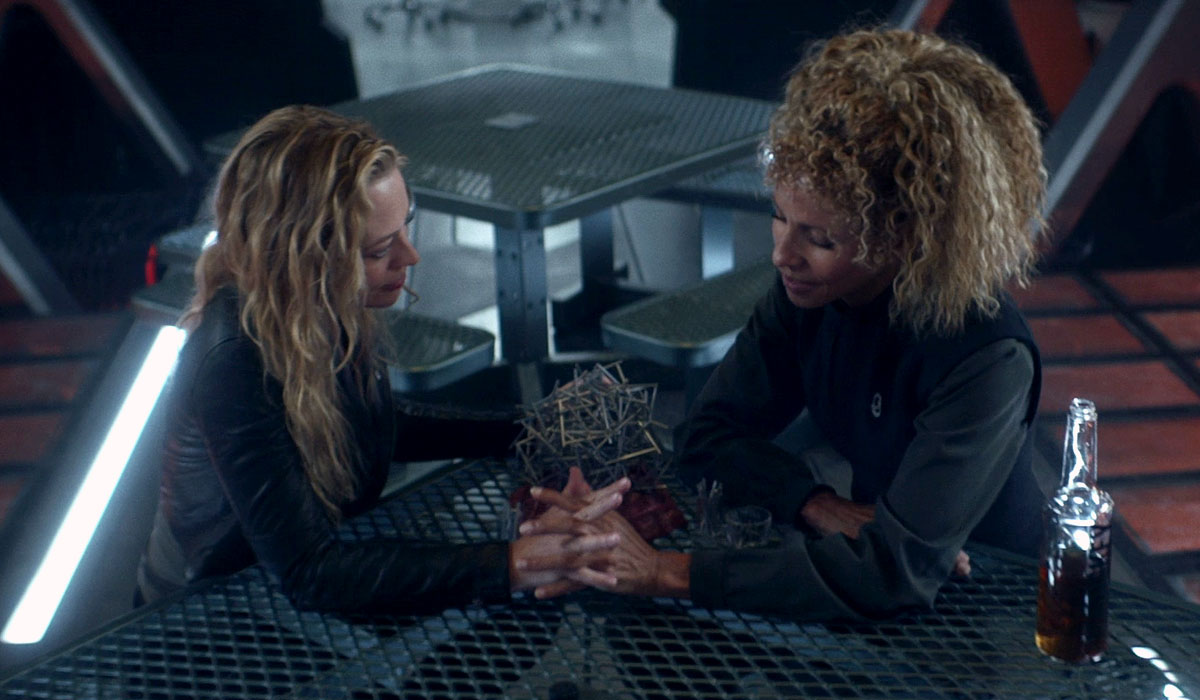
He also talked for a moment regarding that surprising connection between Seven of Nine (Jeri Ryan) and Raffi Musiker (Michelle Hurd) at the end of the season finale, expected to be a part of Season 2’s story.
“That’s something that really emerged through a kind of collaboration, I would say, between the writers and the actors. I think Jeri and Michelle picked up on something that was present in [“Stardust City Rag”] when Raffi is handcuffing Seven, but like stage handcuffing her because it’s all part of this elaborate grift they’re trying to run.
And there was just that suggestion of a kind of instant connection there, I think that was on the page and was intended. But the nature of that connection was maybe left a little open and they both picked up on it and it emerged. I could just feel it on the set when they were doing the scenes.
It was something they clearly seized on as a key to that scene for both of them.”
“I think it’s sort of they’re just taking steps at the end, in that last episode, towards exploring something that they haven’t had the chance to explore so far, because things have been so crazy,” he hints.
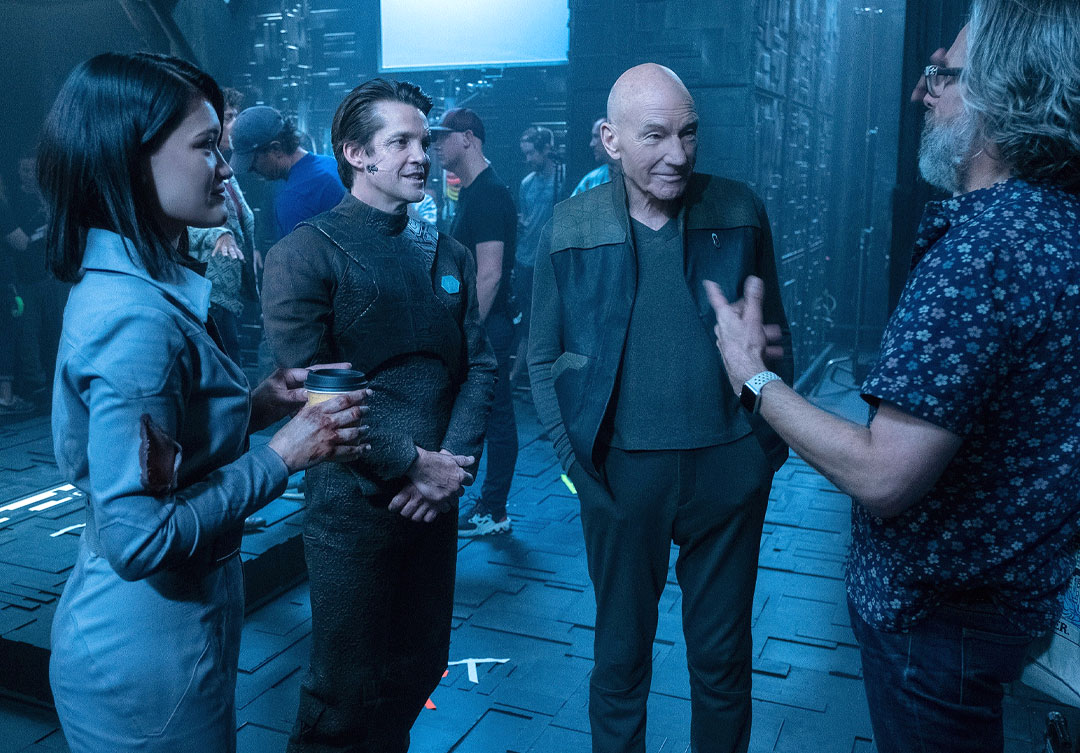
Chabon also spent some time talking with Variety, and addressed the fan reactions to the death of former Borg drones Icheb (Casey King), whom Seven of Nine rescued from the Collective aboard Voyager, and Hugh (Jonathan Del Arco), returning from the Next Generation days.
“In the course of this season, we show the death of Icheb, who was a recurring character on ‘Voyager,’ and then the death of Hugh, who was a recurring character on [‘The Next Generation’].
When we talked about it, we definitely had a sense of like, there’s probably going to be some people who are upset that these characters have died. And we were okay with that, because we thought in both cases, neither death was gratuitous.
The death of Icheb has now become part of the story of Seven of Nine. It felt completely called for and we couldn’t have told her story without it. I mean, the death of Icheb is upsetting partly because it’s fairly gruesome, which I understand, but also because, you know, he’s so powerless, he has no agency. He’s really a victim.
But that isn’t the case with the death of Hugh. He dies trying to do what he’s been trying to do for his entire adult life, which is help former Borg. His death felt meaningful.”
The writer expressed his surprise at some of the reactions he saw, not about how those deaths impacted the season’s story — but that any returning character would be killed at all.
“I will say, I don’t think I quite understood that there were going to be people who would be upset about a character’s death, regardless of how that character died. That simply the fact of a character dying — that was not okay with them.
Even if I had known that, I would have ultimately dismissed it because it seems — I just don’t understand television in that way.”
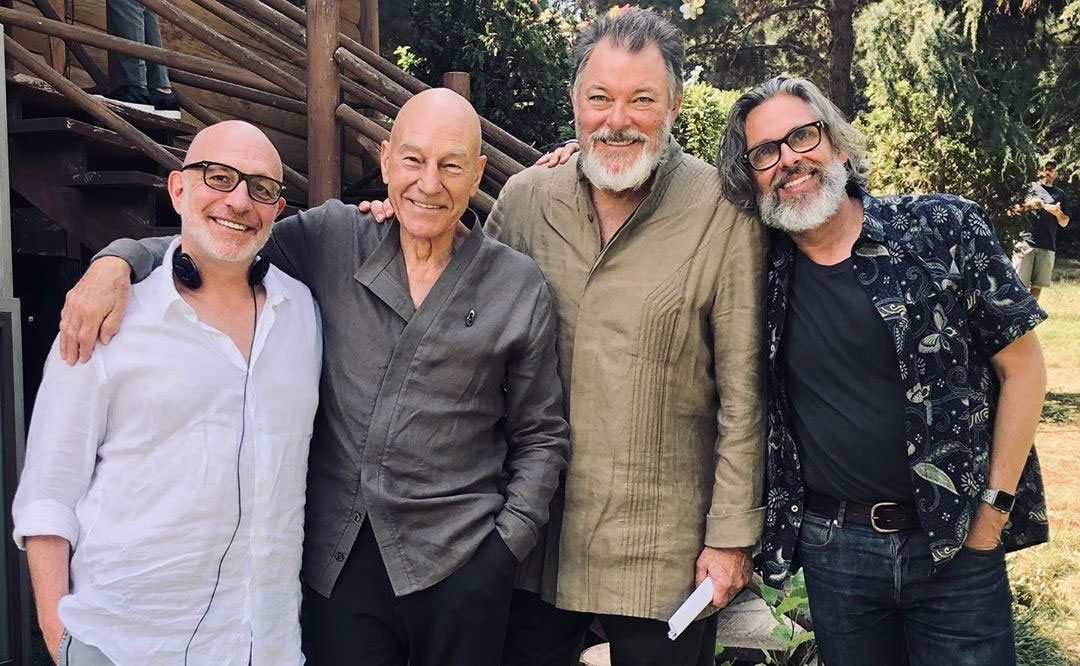
Speaking at length, the novelist addressed fairly widespread fan concern that the Star Trek: Picard story was “too dark” for a Star Trek tale, attributing most of that feedback to how the show has changed in presentation style from the Berman-era days — where each episode (generally) maintained a story that would be concluded within the space of an hour.
“If you’re watching a one hour episode of [pre-2010s] ‘Star Trek’ all of them — except for long swaths of “Deep Space Nine” toward the end of its run — have been episodic. It could be a character having [makes air-quotes] ‘dark issues.’ You could even introduce a certain ‘dystopian’ element into an episode of ‘Star Trek.’
You could introduce that in Act One, and any fan would be willing to tolerate that. They would be willing to tolerate a character having a substance abuse problem or not being nice to their fellow crew members — as long as it got put back to rights at the end of the episode.
When you do it in episode 1 or 2 of a 10-episode season, and that character’s problem doesn’t really get resolved until the last couple episodes — a lot of people can’t tolerate that. And that’s really interesting. Again, it’s a question of expectations, of biases.
You come to ‘Star Trek,’ I think, as a fan, especially if you’ve watched all the episodes many, many times, with this expectation that you won’t have to tolerate that kind of level of ‘darkness’ for that long. And so that when a show in this era asks you to do what you are readily willing to do with a show like ‘Westworld’ or ‘Breaking Bad’ or whatever — somehow, the mere fact that it’s ‘Star Trek’ makes it hard to accept.
And I actually get that. It’s a little weird for me, too. Both in conceiving this show, and sometimes, if I can give myself enough distance as I’m watching the episodes as they’re dropping, I can feel this deep wiring in my brain that wants ‘Star Trek’ to be episodic. I can remember how odd it felt watching those serialized episodes of ‘Deep Space Nine.’
I wasn’t entirely sure I liked it then, either. It was so far ahead of its time. I appreciated it because they were dealing with a very greatly disturbed moment in the history of the Federation with the Dominion war. It felt appropriate, I respected it, and I understood it — and it made me uncomfortable as a ‘Star Trek’ fan.
So it’s been interesting [to watch] the response unfold in real time and being able to understand where a lot of this is coming from as a fan. It’s made it easier for me to accept when fans express their displeasure.”
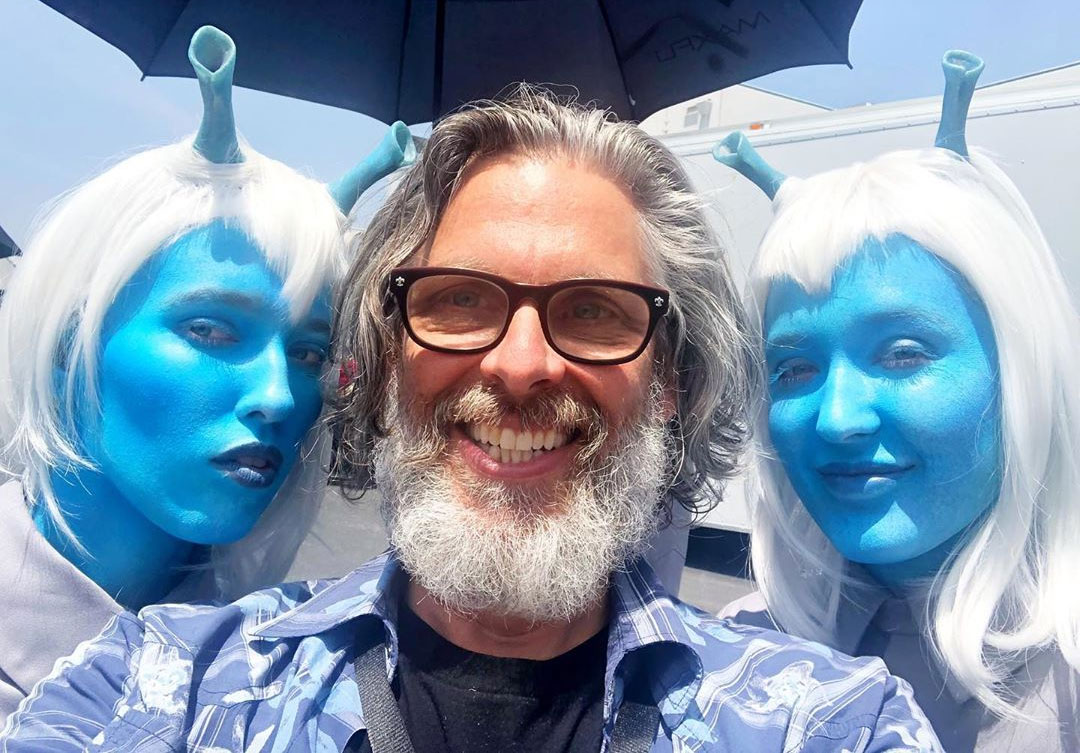
Finally, Chabon looked ahead to next season, which — contrary to some interpretations of December’s report that he will be leaving the showrunner role — he will still be actively involved in, from story development to script writing.
“Truthfully, you can’t really be the showrunner of a show and do anything else. It was all consuming. I loved every minute of it — the hard parts as much as the easy parts. But I recognized that I couldn’t do it again, and also finish a novel, and also develop ‘Kavalier & Clay’ and ultimately co-showrun that [project]. There’s just no way.
So I’m still an executive producer on ‘Picard.’ I’m writing two episodes. I was there breaking the second season, all the way through. I was engaged, I think, in exactly the same degree as I was on Season 1 up to the point where it’s time to start production — and at that point, I will not be doing the same thing at all. I’ll just be continuing to give notes and, and be involved as an EP.”
Aside from his personal behind-the-scenes plans, there wasn’t much the writer could share about next season, but he did express his optimism at the series’ potential as things move forward.
“[Season 2 is] going to be different in some ways. It’s definitely going to go in directions that we didn’t see in Season 1. I think we’ve been emboldened in many ways by the popularity of the show.
I’ve only done this once, but I would imagine it’s probably true for a lot of television shows especially in this era: Season 1 was in many respects about learning how to make ‘Star Trek: Picard.’ Both in a production sense, but also in terms of storytelling and who our cast is, how these characters end up forming surprising links and attachments to each other.
It’s in a way that I think was probably true back with TNG, and what I was talking about — everyone agrees, once Riker grew the beard, the show got better. It was because they learned what they had.
Going forward, we’re only going to be doing more of what we did, with greater confidence and with a greater sense of what this show feels like when it’s firing on all engines.”
![]()
Star Trek: Picard is in pre-production for Season 2 now, expected to return with new episodes in 2021.
